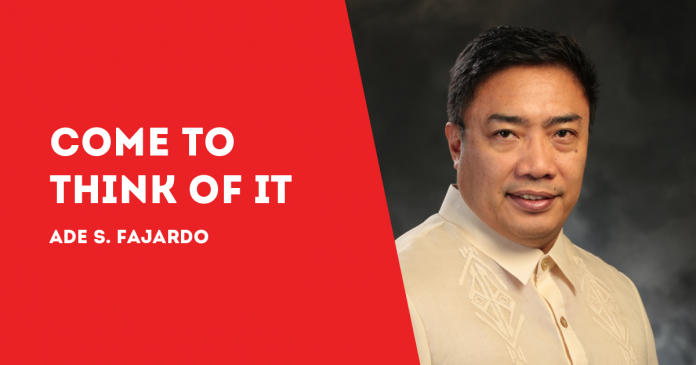
“I SAW, and look! A pale horse, and the one seated on it had the name Death. And the Grave was closely following him. And authority was given them over the fourth part of the earth, to kill with a long sword and with food shortage and with deadly plague and by the wild beasts of the earth.”
That quote is from Chapter 6 of the Bible’s book of Revelation. In Christendom, four horsemen are said to foretell disastrous events leading to the second coming of Jesus Christ.
The fourth horseman is the harbinger of pestilence and famine.
We are confronted with an uncertain future. The prospects of disease, hunger and death now all seem very real in our previously apathetic consciousness.
As people stay home in apocalyptic fear, all hopes are pinned, almost exclusively, on the capacity of government to contain the corona pandemic as it proceeds to slay by the thousands – worldwide. Not one nation can stand secure in its borders as the virus has infiltrated even the most prosperous and modern countries.
This fear of death and the unknown have brought our defenses down. People are willing to surrender their basic freedoms in exchange for at least an assurance that they will be fed and free of disease in the next three or four weeks.
Sadly, in the context of this pandemic, there appears to be a trend among authoritarian governments to suppress fundamental rights such as freedom of expression and of the press. The naked intent is to prop up a false sense of security among their peoples and boost these governments’ stock for continuity. Is this the case in the Philippines?
Government was tempted. This crisis has exposed government to be a tad insecure in the face of a possible downturn in its heretofore sterling public rating.
It is no secret that the bill that became the Bayanihan Heal as One Act started as a draft from the Palace. At the start of the deliberations, Executive Secretary Salvador Medialdea was given audience by Congress where he assured the public that the President is not inclined to abuse his powers under the emergency measure.
The Palace draft got leaked and was circulated by the media the day prior to the special session of Congress.
The draft contained a “takeover provision” that authorized government to temporarily take over or direct the operation of any privately owned public utility or business affected with business interest.
Among those ticked off for possible take-over are telecommunications entities, ostensibly to facilitate government’s messaging to the public during the period of emergency.
The take-over clause respecting telecommunications is not germane to the measure. The fact is that it is the very normalcy in the operations of telecommunications as well as radio and television networks that enabled the national government to communicate the enhanced community quarantine that it imposed after it was unable to shield the nation’s borders from the introduction of the coronavirus.
If at all, the provision is reminiscent of the take-over provision defined by the law on coup d’etat which penalizes as a crime the forcible takeover of communications networks, public utilities or other facilities needed for the exercise and continued possession of power. In that law it is relevant. In the leaked Palace draft, it reads like a rider to consolidate power.
And that was evidently the potential deal-breaker. The provision was taken out, and the Palace had no choice but to relent. The country’s legislators were willing to go so far only as to bequeath powers that are essential to the delivery of emergency public health responses in this time of great need.
Truly, there is a balancing act between the State’s obligation to take care of its citizens’ well-being, and its legal duty to uphold fundamental individual rights.
However, emergency powers do not suspend the Bill of Rights. Even without a functioning Constitution, government may not ignore the people’s right to due process of law, their right against unreasonable searches and seizures, as well as the right to freedom of expression and of the press.
As of press time, Harry Roque has been reinstated as presidential spokesperson. This is in order, according to Salvador Panelo, to bring about a “change of tack in messaging.”
Containing the pandemic competently and efficiently is a barometer that no amount of criticism from traditional and social media can possibly downplay. This must be the priority. Otherwise, government itself will be branded as the pale horse of the apocalypse./PN





